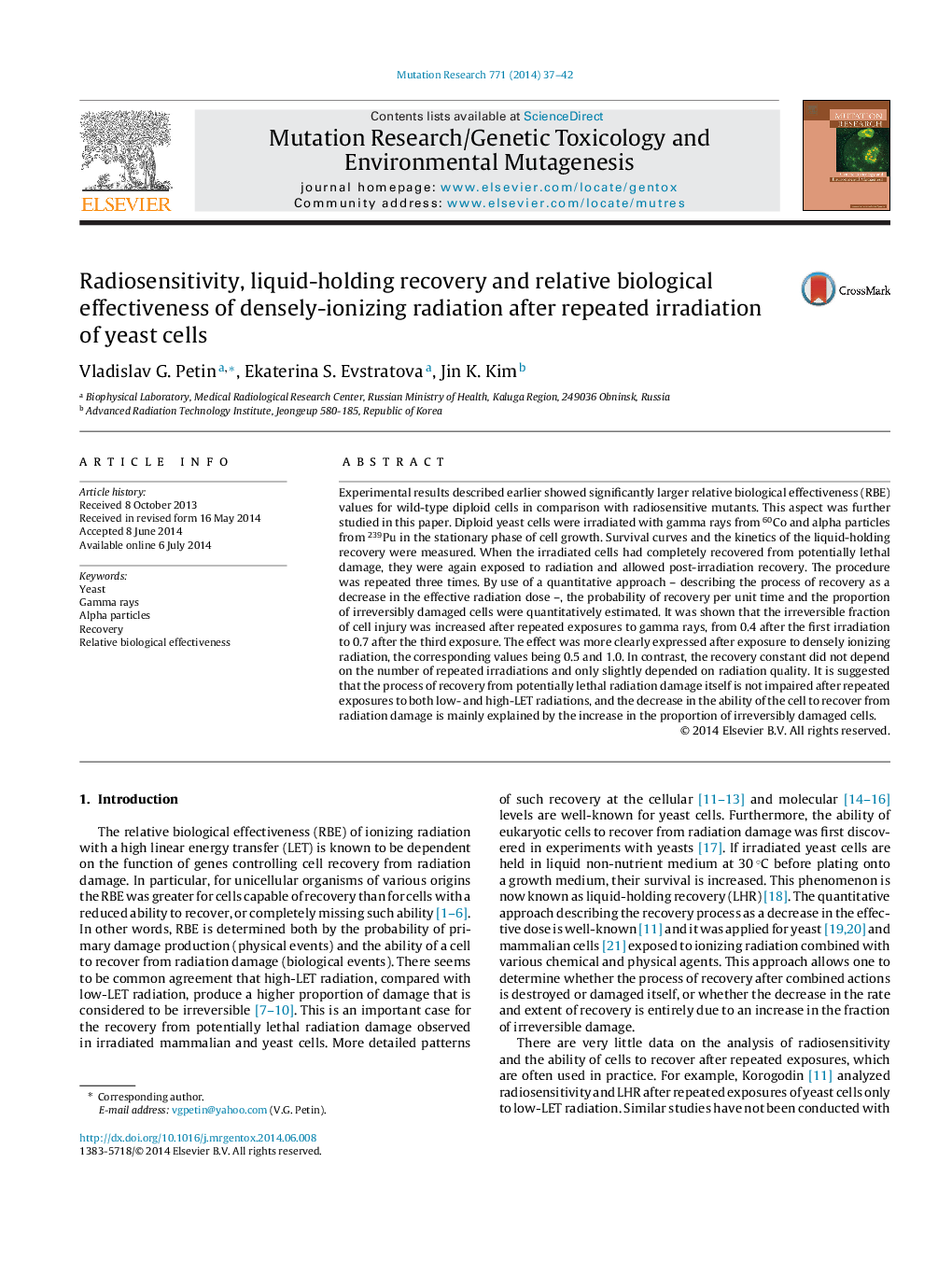| Article ID | Journal | Published Year | Pages | File Type |
|---|---|---|---|---|
| 2147926 | Mutation Research/Genetic Toxicology and Environmental Mutagenesis | 2014 | 6 Pages |
•Repeated irradiation of yeast cells.•Low- and high-LET radiation.•Mathematical model of cell recovery.•Estimation of cell recovery parameters.•Recovery constant and irreversible component.
Experimental results described earlier showed significantly larger relative biological effectiveness (RBE) values for wild-type diploid cells in comparison with radiosensitive mutants. This aspect was further studied in this paper. Diploid yeast cells were irradiated with gamma rays from 60Co and alpha particles from 239Pu in the stationary phase of cell growth. Survival curves and the kinetics of the liquid-holding recovery were measured. When the irradiated cells had completely recovered from potentially lethal damage, they were again exposed to radiation and allowed post-irradiation recovery. The procedure was repeated three times. By use of a quantitative approach – describing the process of recovery as a decrease in the effective radiation dose –, the probability of recovery per unit time and the proportion of irreversibly damaged cells were quantitatively estimated. It was shown that the irreversible fraction of cell injury was increased after repeated exposures to gamma rays, from 0.4 after the first irradiation to 0.7 after the third exposure. The effect was more clearly expressed after exposure to densely ionizing radiation, the corresponding values being 0.5 and 1.0. In contrast, the recovery constant did not depend on the number of repeated irradiations and only slightly depended on radiation quality. It is suggested that the process of recovery from potentially lethal radiation damage itself is not impaired after repeated exposures to both low- and high-LET radiations, and the decrease in the ability of the cell to recover from radiation damage is mainly explained by the increase in the proportion of irreversibly damaged cells.
